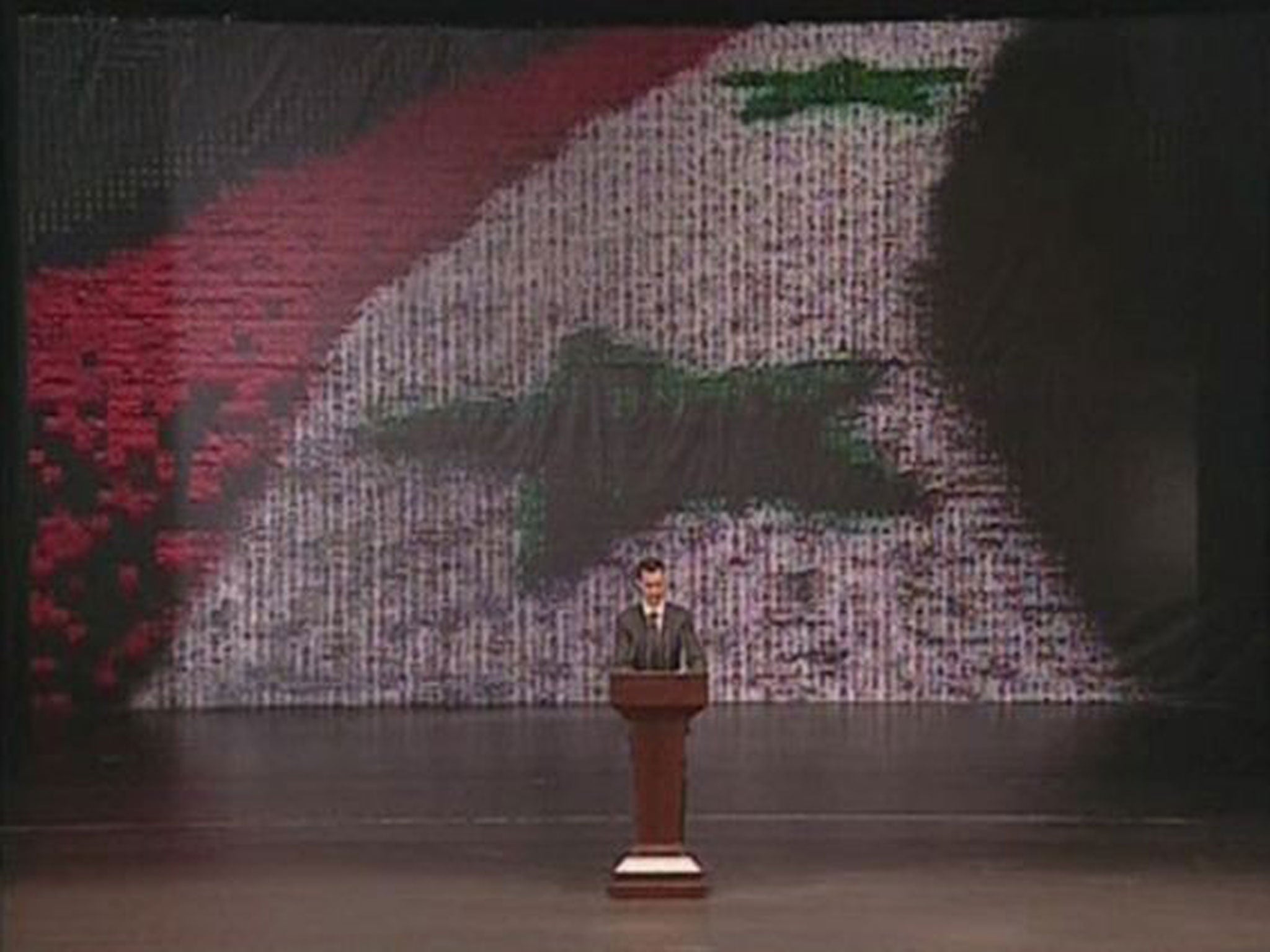Army was the target audience of President's theatre at the opera house
The message for Syrians was clear: the army is the bedrock of power


Bashar al-Assad was really talking to his soldiers yesterday – and the ghosts of their 12,000 dead. The faces of hundreds of these government “martyrs”, coloured and bleached out on to a massive red-white-and-black Syrian flag, paraded on the wall of the Assad Opera House in Damascus just behind the President. It was, perhaps, ghoulish. Theatrical, of course. It must have taken days to stitch this lot together. But the message for Syrians was clear enough: the army is the real bedrock of power. He saluted them, he praised them, “the officers, warrant officers, brave soldiers”. He never mentioned the Baath party, gave short shrift to the hated government militias. But the Syrian military – the Syrian Arab Army –might as well have stood with Assad on the 34-metre stage. The names of their dead, he said, would be “written in letters and lights of fire.” And their dead faces stared down at the audience with what might have been reproach.
Those who hate Assad will remind us that Hitler’s most important speech came at the Kroll Opera House in Berlin. Bashar al-Assad’s most important speech came yesterday in the opera house he opened scarcely nine years ago. The last work to be performed at the Kroll – and among the first at the “Assad” – was The Marriage of Figaro. All speeches are theatrical. The comparisons end there.
Hitler was declaring war on the US. Assad was continuing his war with armed “terrorists”. But – pity the West – Assad is far from Hitler’s megalomania, and, boring though it appeared to his opponents, his address contained some intriguing clues about what is going on in the Baathist halls of power. His odd reference to the battle for Ras el-Ein was important. This tiny conflict in Hassakeh was fought between the Kurdish Democratic Union – which tends to ally itself with the regime – and the Free Syrian Army and its allies who have alienated and sometimes insulted the Kurds. Assad was praising his non-Arab Syrian friends, suggesting that armed Syrians need not remain alongside his opponents.
Question: isthe Syrian leader trying to win back bits of his territory by popular appeal rather than military firepower? Much of the stuff, the “national dialogue”, border security and the “national pact”, we’d heard before. Familiar was Assad’s assertion that Russia and China were the best thing since friend bread. And I was a bit taken aback by his claim that the ideology of jihadists, their desire to destroy Syria and their foreign backers, meant that he had no-one to talk to among them. Isn’t this what Netanyahu says about Hamas?
But it was the army which took centre stage. Not the party. Not the family. But the military, which the West regards as little more than war criminals. Did the young civilian men – struggling and fighting to mob their boss as he made his exit with rather too much reality for the security goons – realise this? I bet Assad did. The West will headline the obvious:“I will go one day, but the country stays.” The truth? Intriguing. The man’s not out of the ring. But nor is his army. The war, alas, goes on.
Join our commenting forum
Join thought-provoking conversations, follow other Independent readers and see their replies
Comments